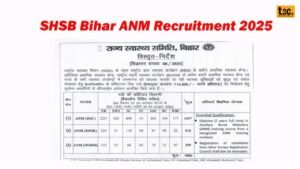Safeguarding Basic Necessities: Consumer Rights and Legal Frameworks in India

Safeguarding Basic Necessities are Consumer Rights and it is important to know Legal Frameworks in India. In India, consumer rights concerning basic necessities such as food, water, shelter, healthcare, and education. These are protected under several laws, government schemes, and constitutional provisions. Here’s a breakdown of these rights and the frameworks that protect them:
1. Right to Basic Necessities
Constitutional Rights
– Right to Life (Article 21): The Indian Constitution guarantees the right to life, which includes the right to live with dignity. The Supreme Court of India has interpreted this to include access to basic necessities such as food, water, health, and shelter.
– Directive Principles of State Policy (Part IV): These principles provide that the State should strive to ensure that citizens have access to adequate means of livelihood, proper nutrition, and standard of living.
2. Food Security
– National Food Security Act (NFSA), 2013: This law ensures the availability of food at affordable prices to a significant portion of India’s population. It aims to provide subsidized food grains to approximately 67% of the population.
– Targeted Public Distribution System (TPDS): Under the TPDS, eligible families receive rice, wheat, and coarse grains at subsidized prices.
– Mid-Day Meal Scheme: Provides free meals to children in government and government-aided schools to ensure that basic nutrition is met.
3. Water
– Right to Water: Although there is no specific law for a right to water, the Supreme Court has upheld that the right to water is implicit in the right to life under Article 21.
– Jal Jeevan Mission: Launched by the Government of India, this scheme aims to provide tap water connections to every rural household by 2024.
– Municipal Services and Water Supply Laws: Local governments are generally responsible for providing clean and safe drinking water.
4. Healthcare
– National Health Policy, 2017: Aims to provide affordable healthcare services to all citizens, with a focus on universal healthcare access.
– Ayushman Bharat (Pradhan Mantri Jan Arogya Yojana – PMJAY): Provides health insurance to low-income families, ensuring access to secondary and tertiary care hospitals across India.
– Essential Commodities Act: During times of emergency, the government can regulate the production, supply, and distribution of essential medical items and food.
5. Shelter
– Pradhan Mantri Awas Yojana (PMAY): This government initiative aims to provide affordable housing to both urban and rural poor. It seeks to ensure that every Indian has access to basic shelter by 2024.
– Slum Development Schemes: Initiatives such as the Rajiv Awas Yojana (RAY) focus on improving living conditions in slums and providing affordable housing to urban poor.
6. Education
– Right to Education Act, 2009 (RTE Act):- Under Article 21A of the Constitution, the RTE Act guarantees free and compulsory education for children between the ages of 6 and 14 years.
– Mid-Day Meal Scheme: This scheme not only ensures access to food but also acts as an incentive for parents to send their children to school.
7. Consumer Protection Act, 2019
This Act protects consumers from unfair trade practices, faulty products, and deficient services across sectors, including basic services like healthcare, education, and utilities.
– Consumer Rights: These include the right to be informed, the right to choose, the right to safety, the right to seek redressal, and the right to be heard.
– Consumer Dispute Redressal Mechanism: Forums at the district, state, and national levels exist to handle grievances related to essential services.
8. Social Security and Welfare Schemes
– Mahatma Gandhi National Rural Employment Guarantee Act (MGNREGA):- Provides a legal guarantee of employment to ensure that rural households have access to a minimum wage and livelihood security.
– Public Distribution System (PDS): Ensures food security through subsidized distribution of essential food grains.
9. Electricity and Energy
– Electricity Act, 2003:- Regulates the generation, distribution, and supply of electricity, and ensures that all citizens, particularly in rural areas, have access to electricity.
– Pradhan Mantri Ujjwala Yojana (PMUY): Provides LPG connections to households below the poverty line, promoting clean cooking fuel access.
Consumer Redressal
Consumers who face issues with receiving basic services or products related to necessities can file complaints through:
– Consumer courts: District, State, and National Consumer Disputes Redressal Commissions.
– Online platforms: The National Consumer Helpline (NCH) or portals like e-Daakhil allow for easy filing of complaints.
Key Challenges
While there are laws and schemes, the implementation and access to these services often face challenges such as:
– Corruption: Leakage of funds and resources.
– Bureaucratic Delays: Delayed access to government schemes.
– Awareness: Many citizens are unaware of their rights or how to exercise them.
In conclusion, India has a robust legal framework that guarantees consumer rights related to basic necessities. But gaps in implementation and accessibility remain concerns for a large part of the population. Thus, safeguarding basic necessities are Consumer Rights and knowing the Legal Frameworks in India is important.
Stay tuned on our website as if any official information pops up then we will update you in minutes! If you want all the latest updates on time then join our student community on WhatsApp!
Choose the right career yourself by booking personal guidance from professionals on Mytagapp.com!









